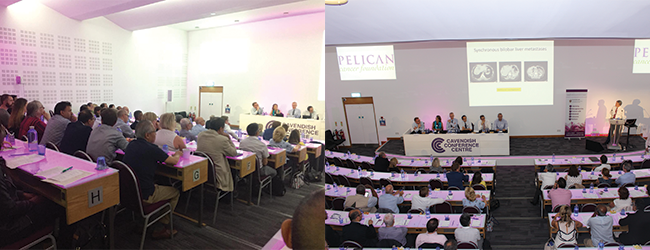A series of short films presented by Professor Bill Heald & Mr Brendan Moran in discussion with peers.
Pelican Cancer Foundation is proud to launch Milestones in Managing and Curing Rectal Cancer, a series of short films presented by Professor Bill Heald and Mr Brendan Moran.
Professor Heald & Mr Moran will be in discussion with colleagues from across the country about the many contributions that have been made by the multidisciplinary cancer team, to develop and improve the treatment and care of cancer patients. The films will be freely available to all our clinical colleagues, but we hope they will also be of interest to you our supporters. Please note that these films are aimed at our clinical audience and will contain some live surgery.
The series of films will acknowledge the developments in the medical research and education that has improved surgery for bowel cancer and its associated secondary disease. Pelican has worked tirelessly over the years and remains dedicated to helping those with bowel cancer live well for longer.
For updates, follow us on Twitter or check back on our website.
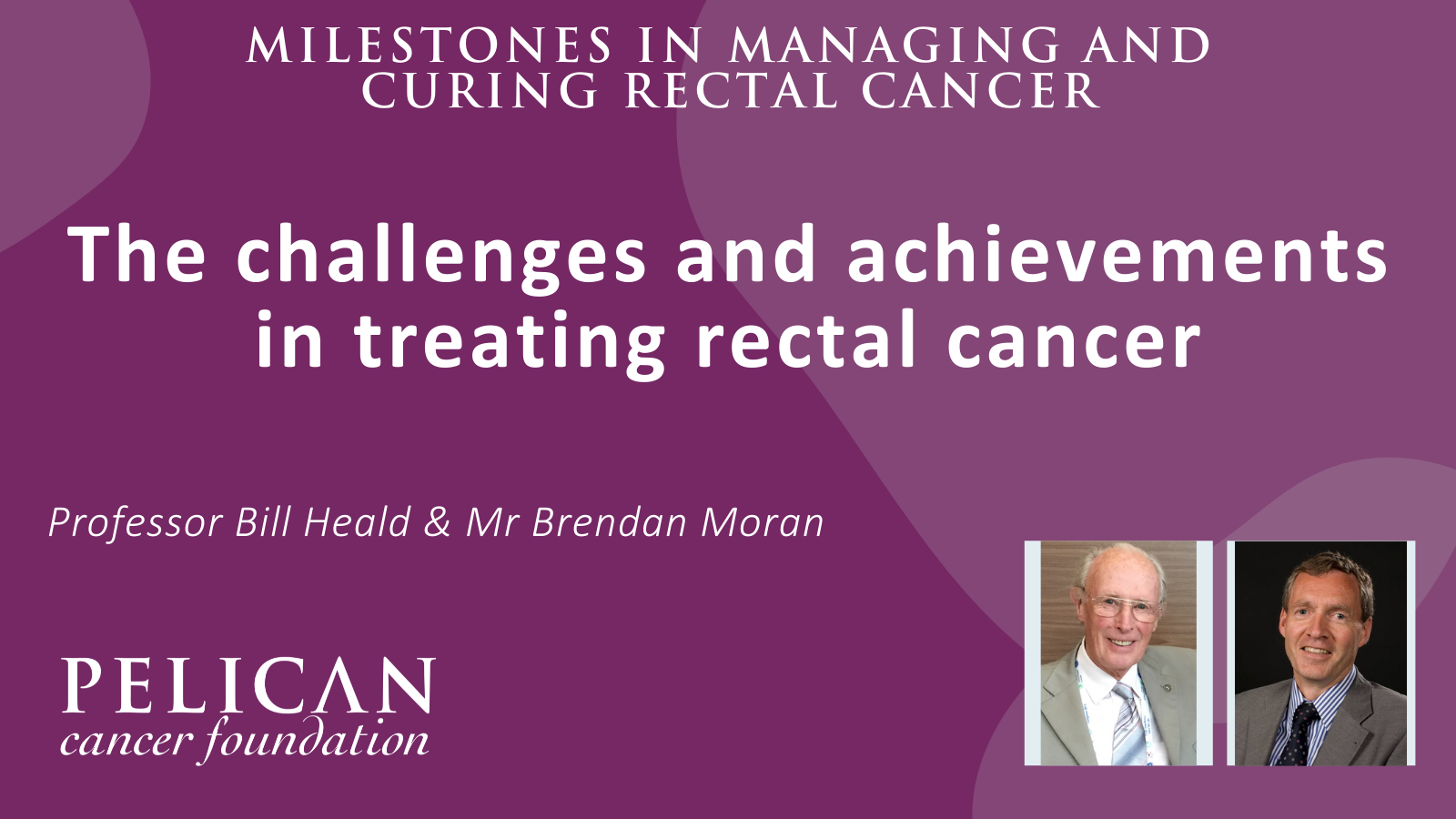 |
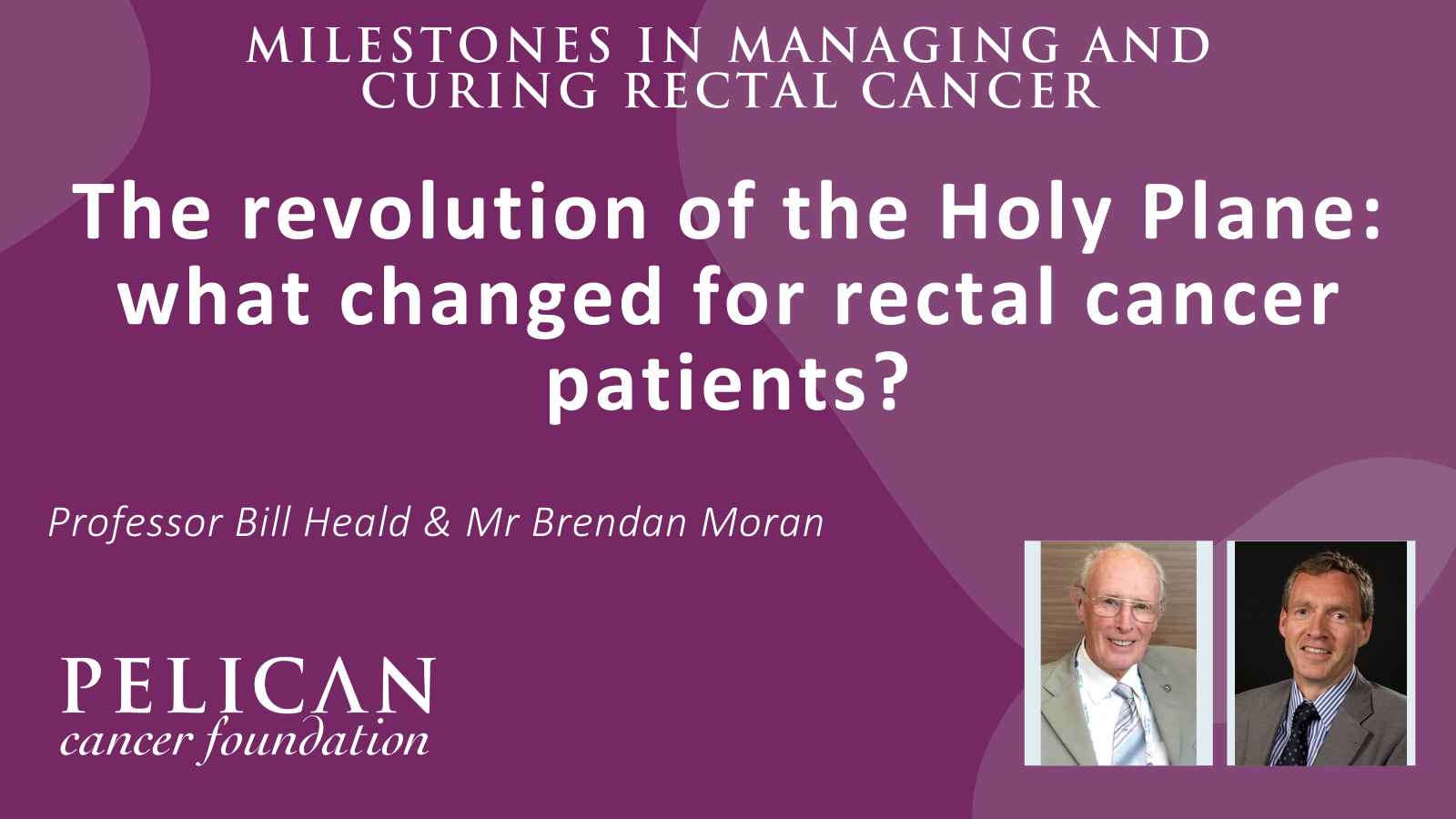 |
|
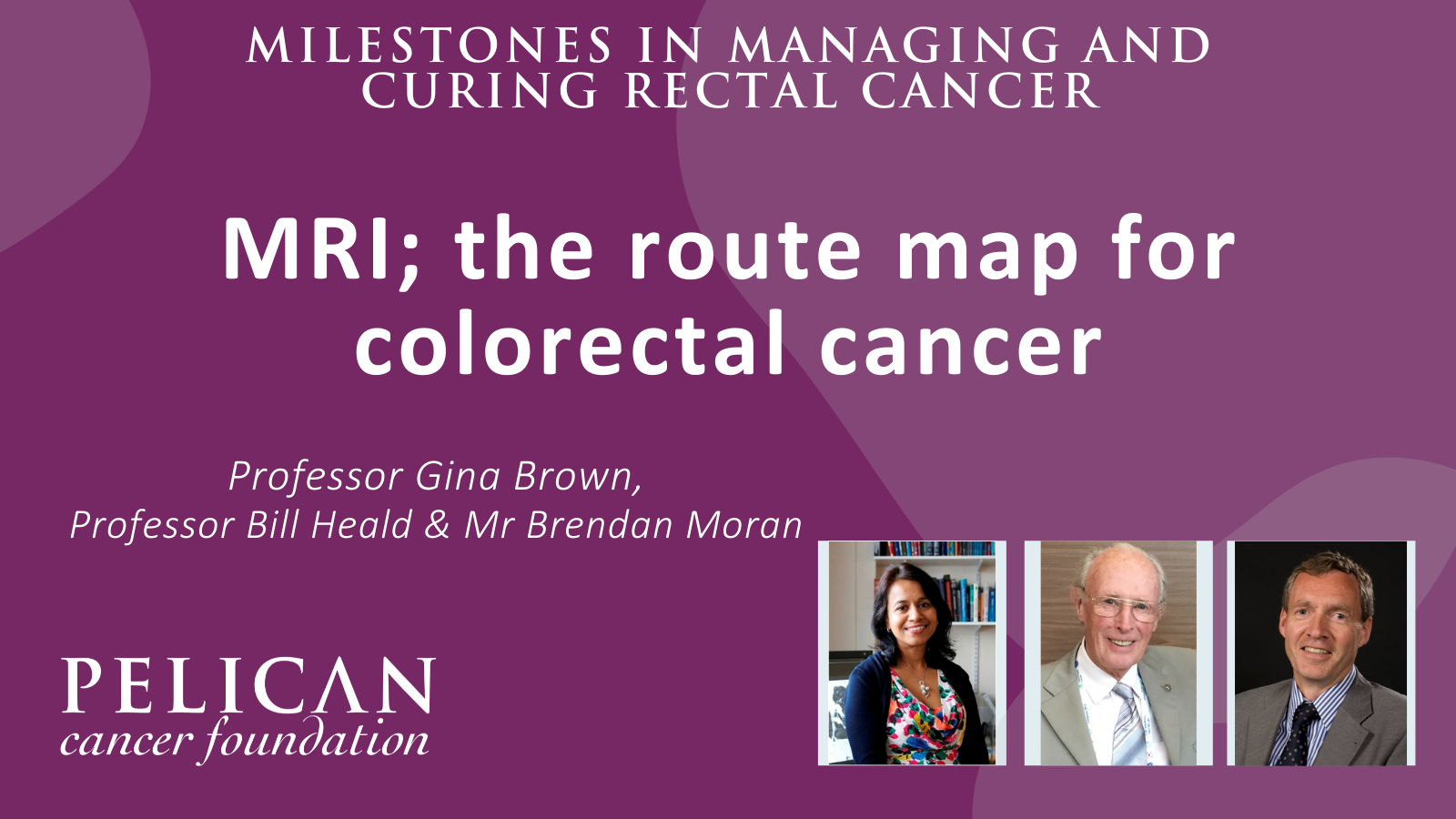 |
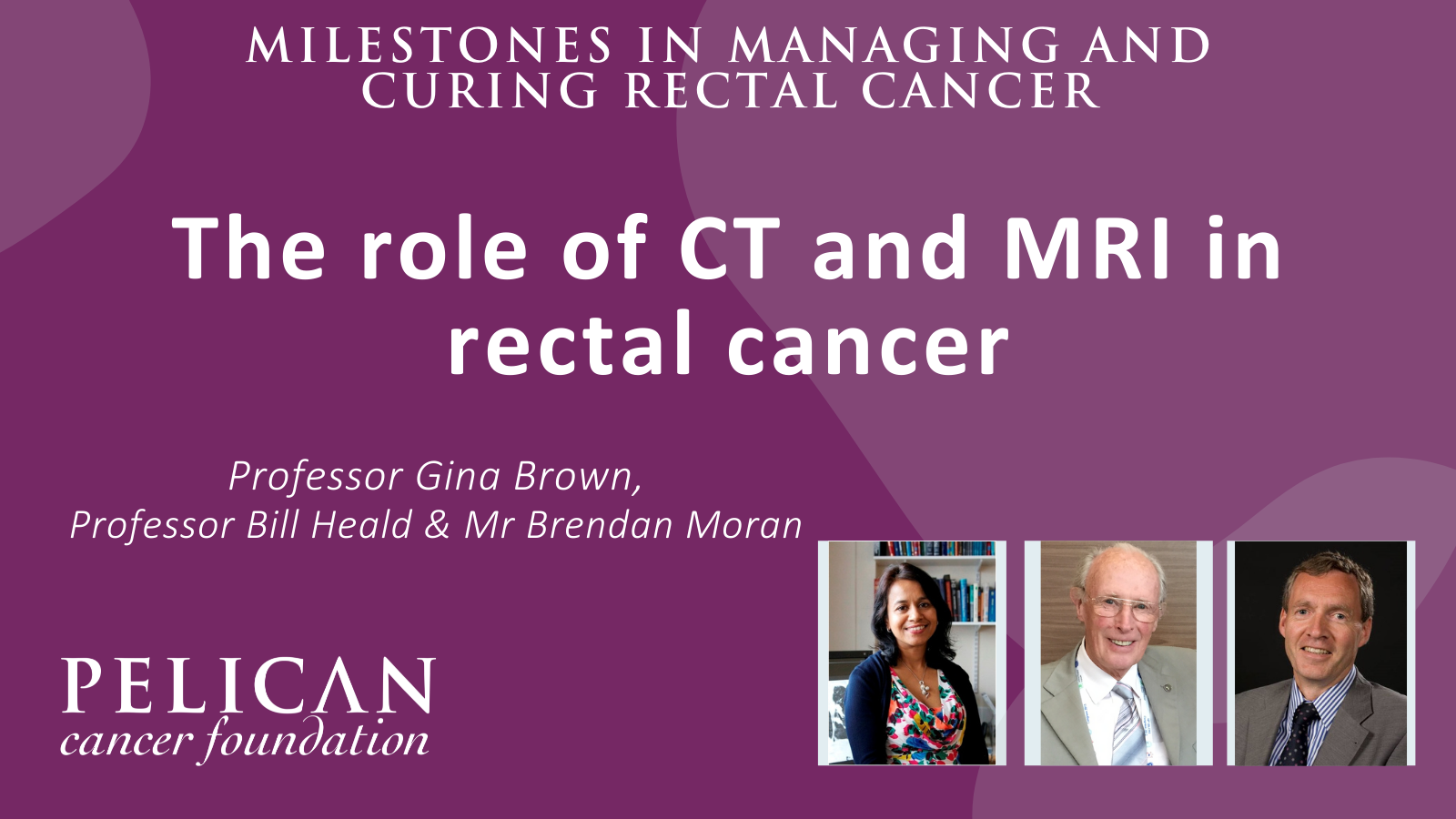 |
|
 |
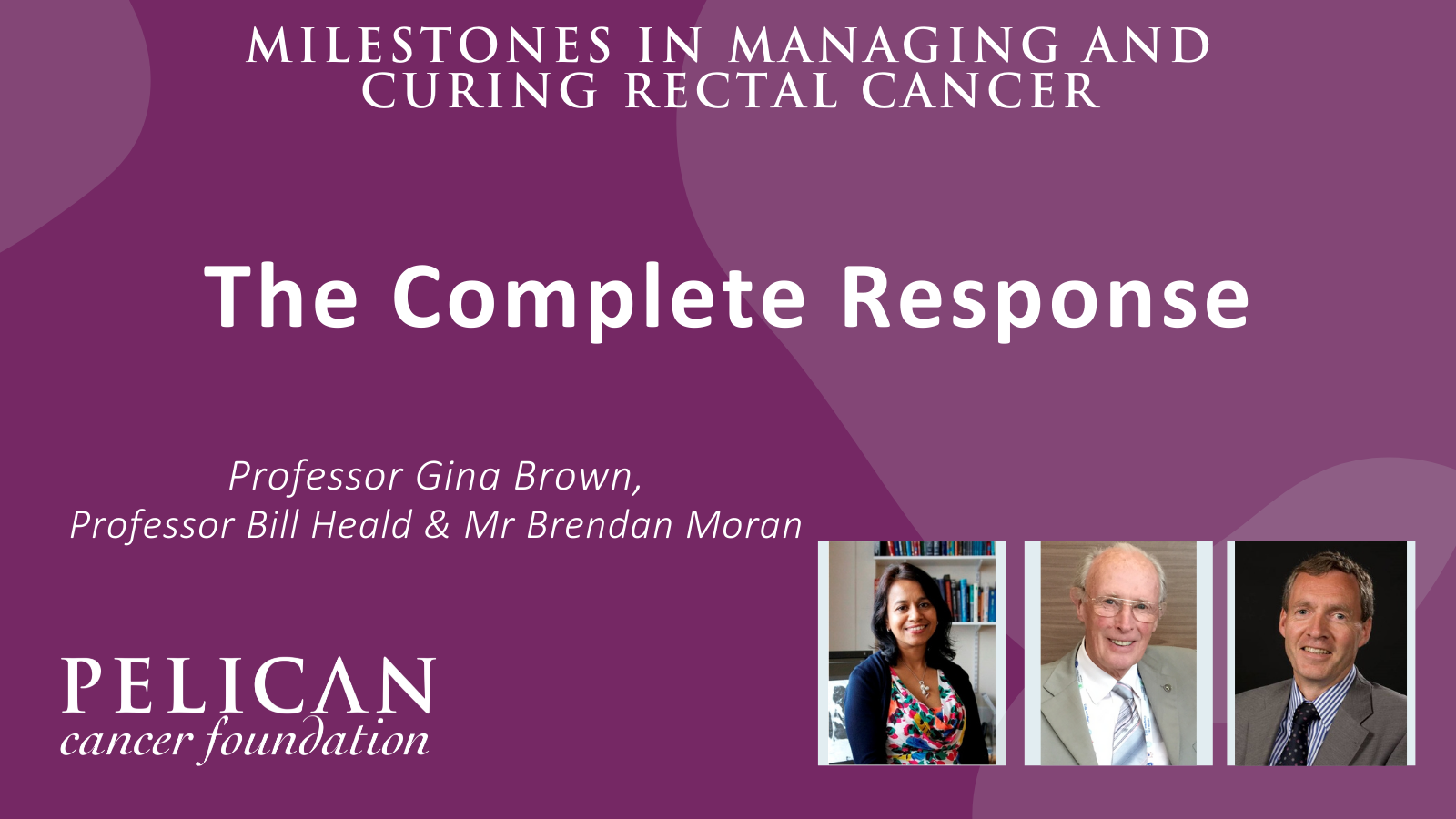 |
|
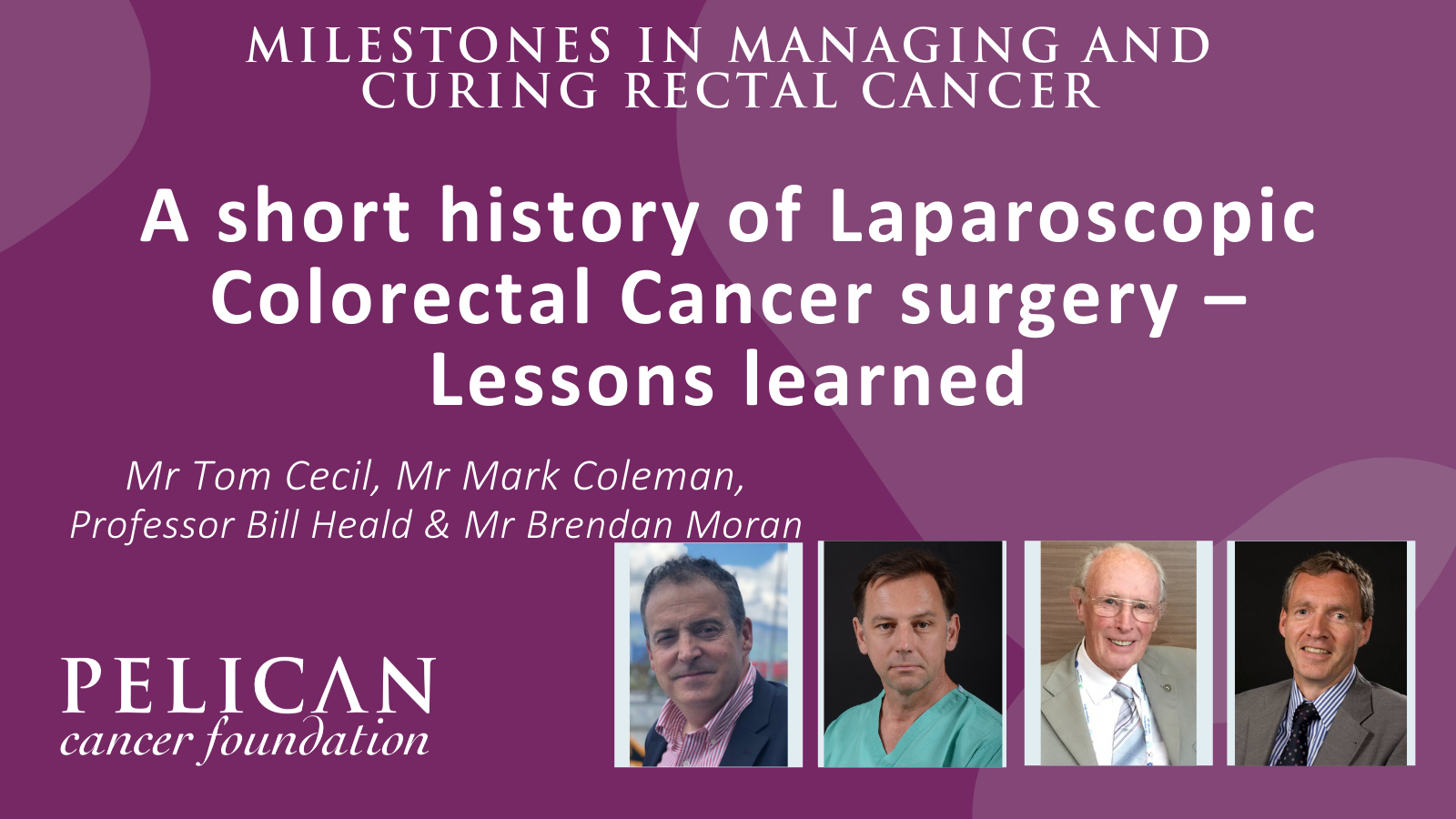 |
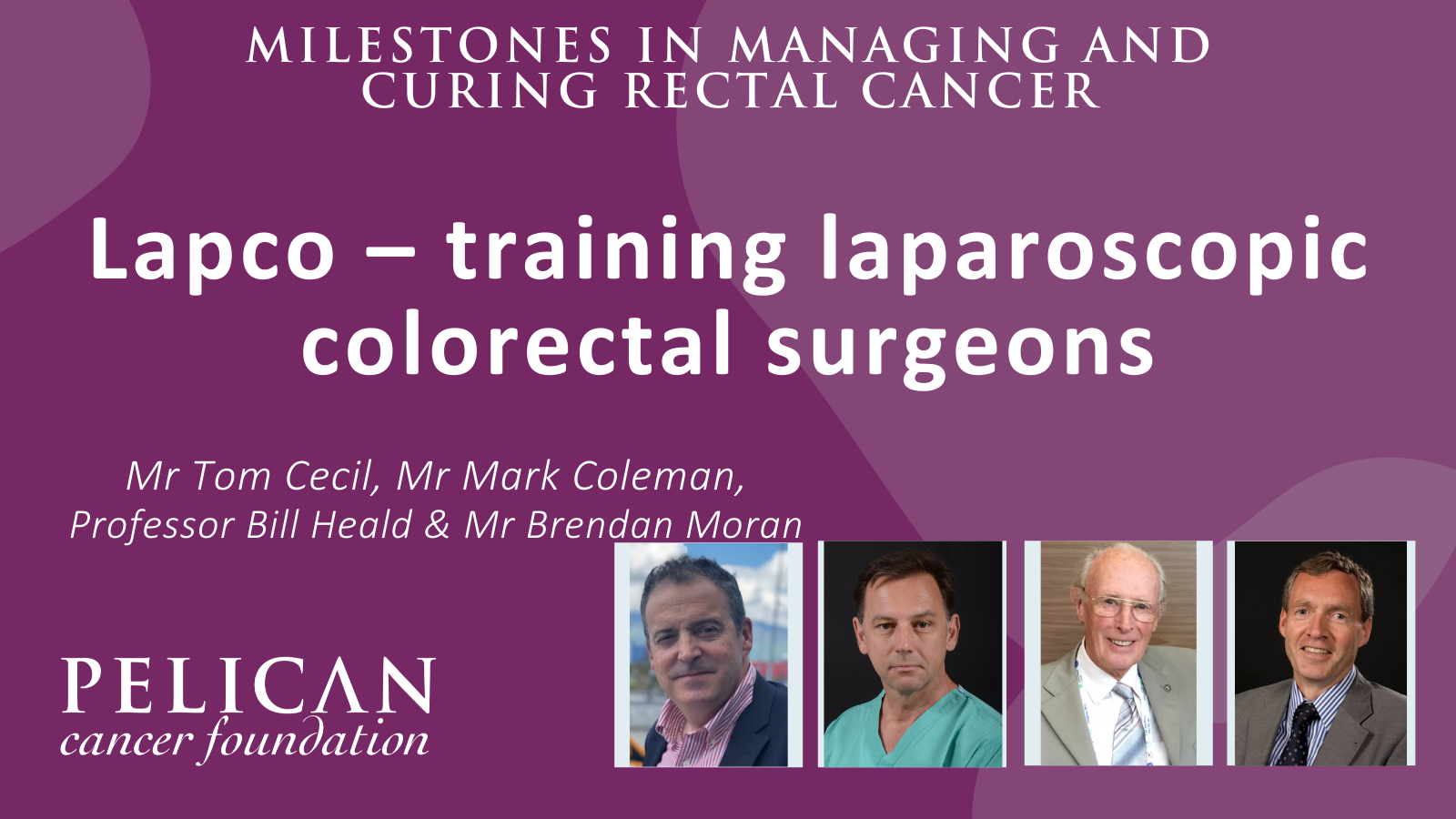 |
|
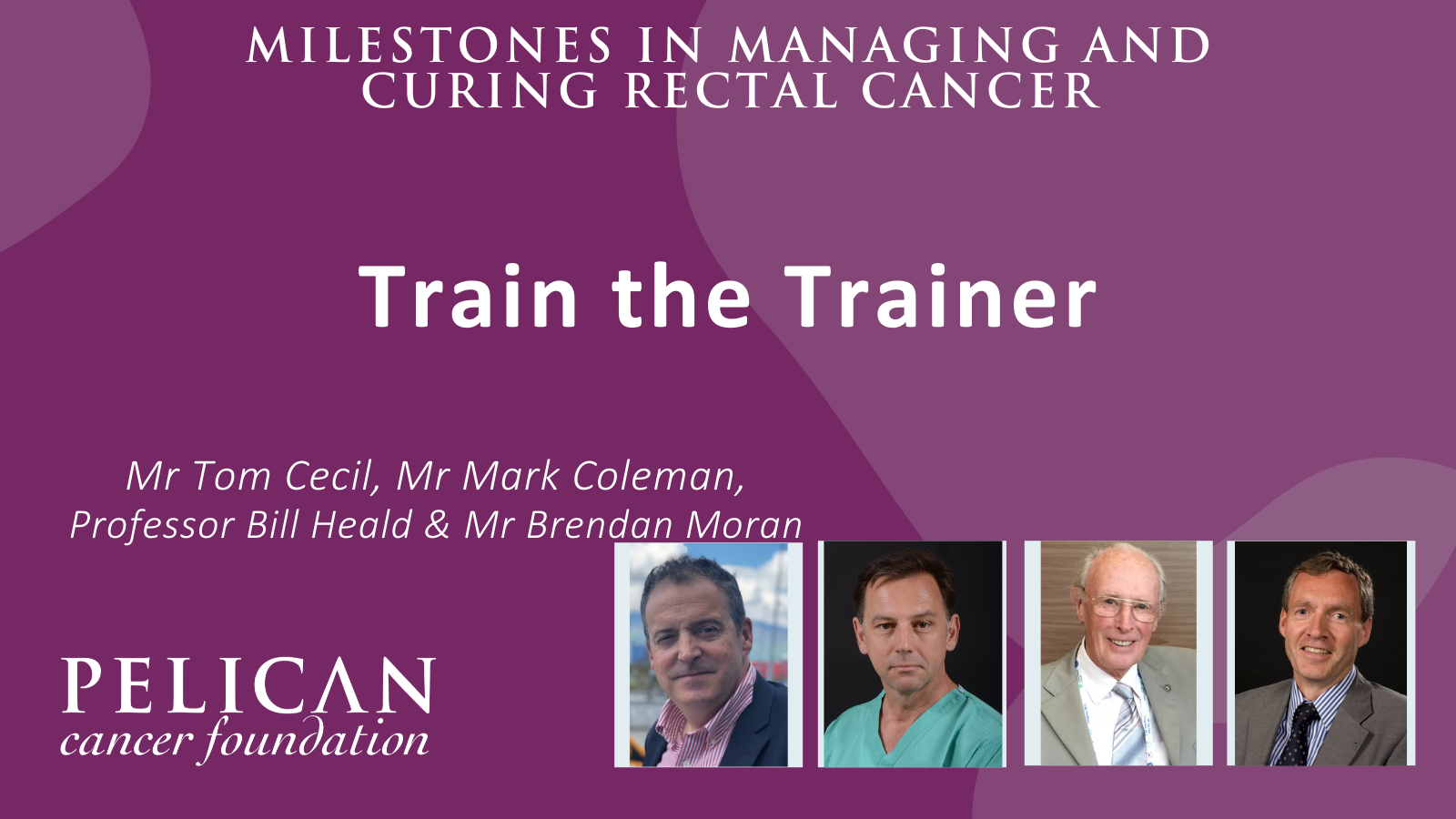 |
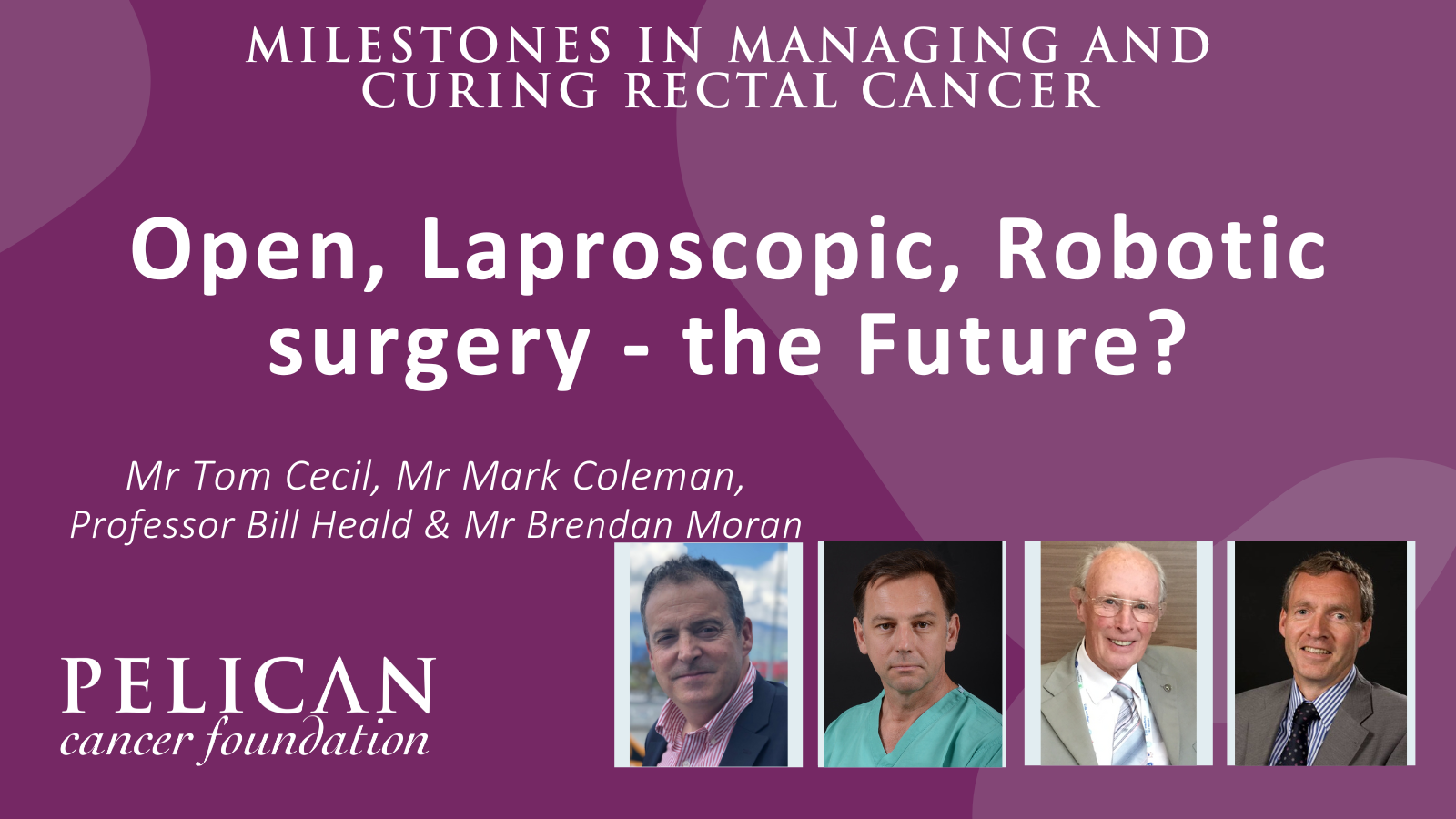 |
|
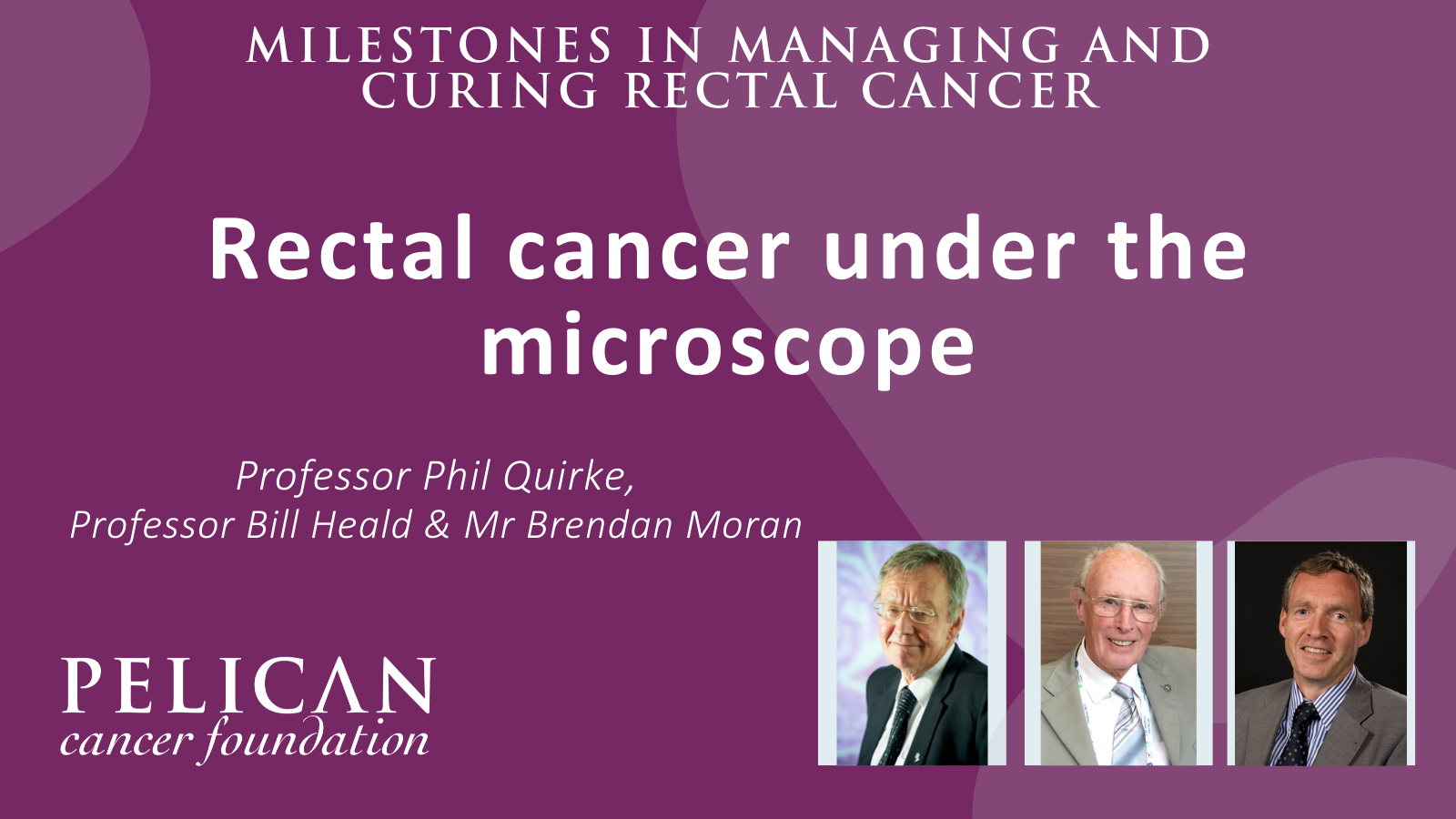 |
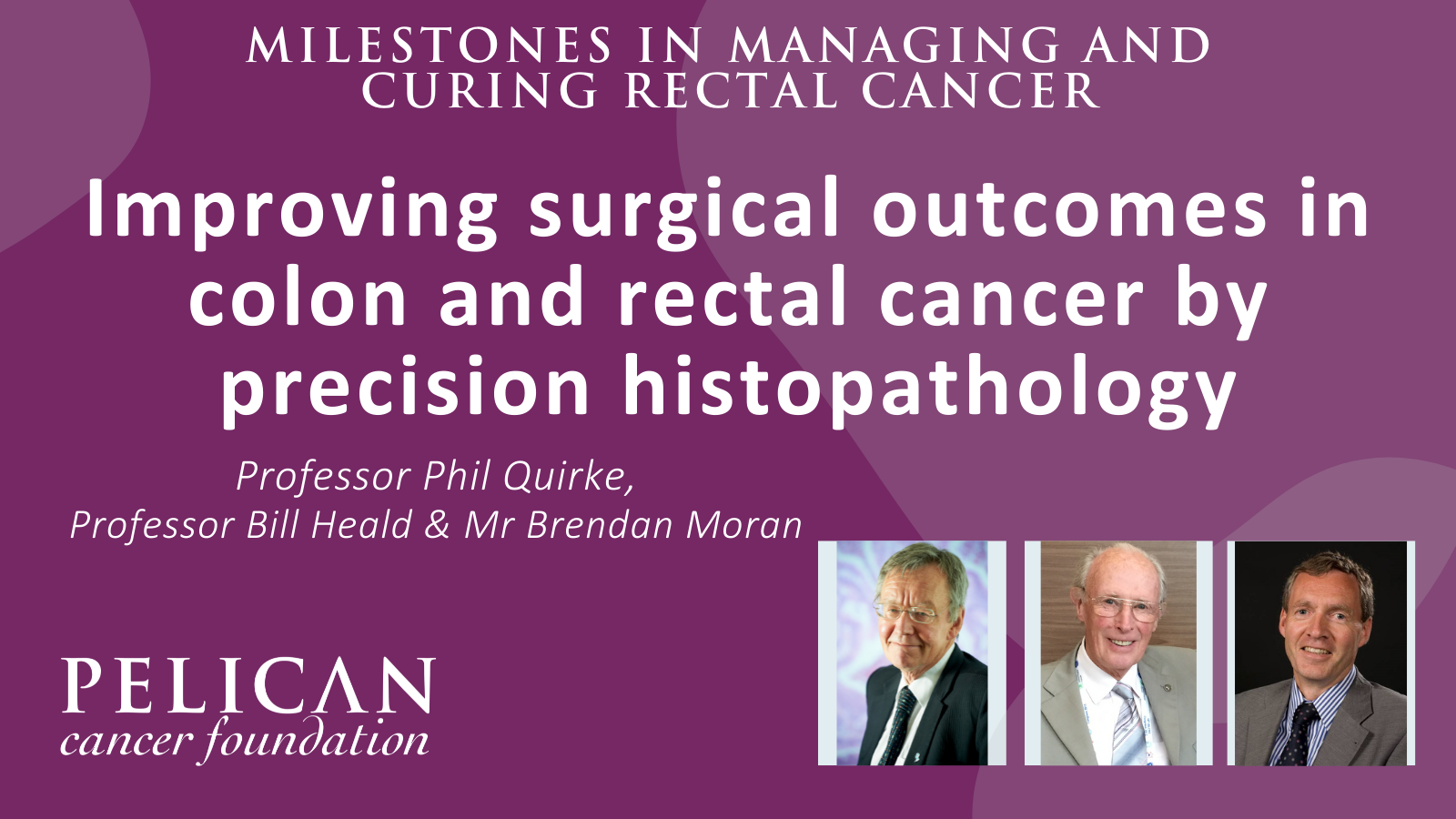 |
|
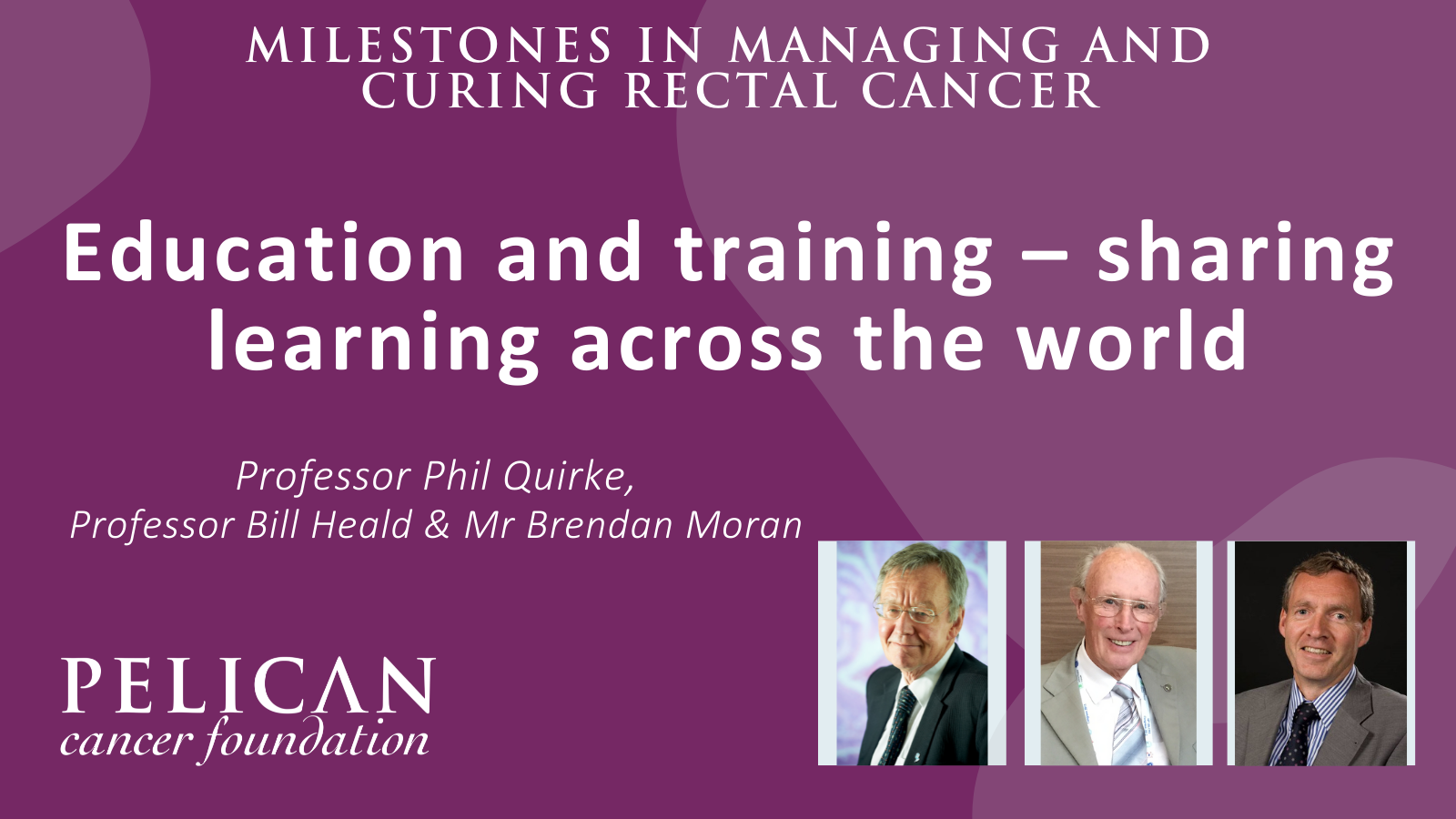 |
 |
|
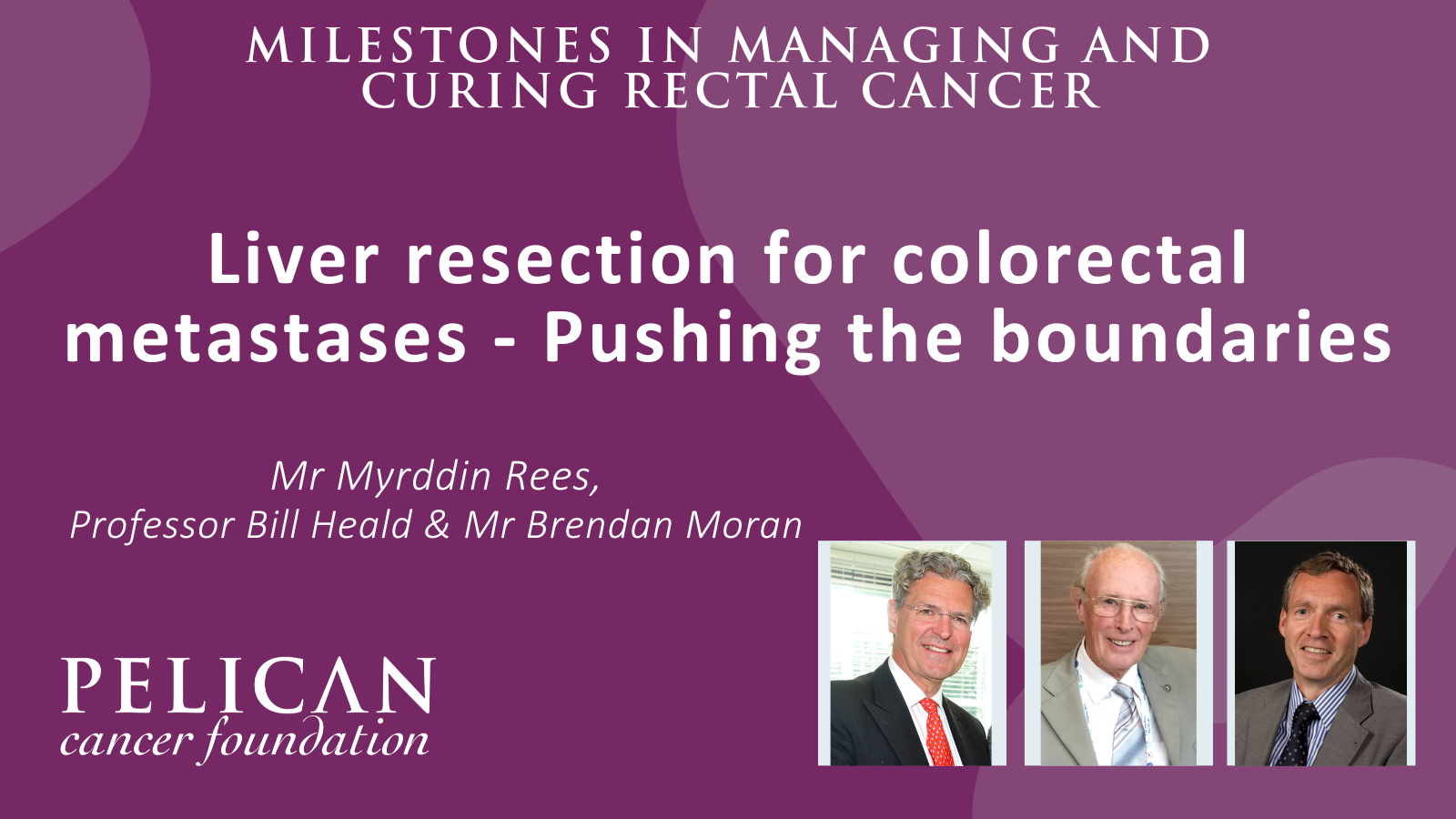 |
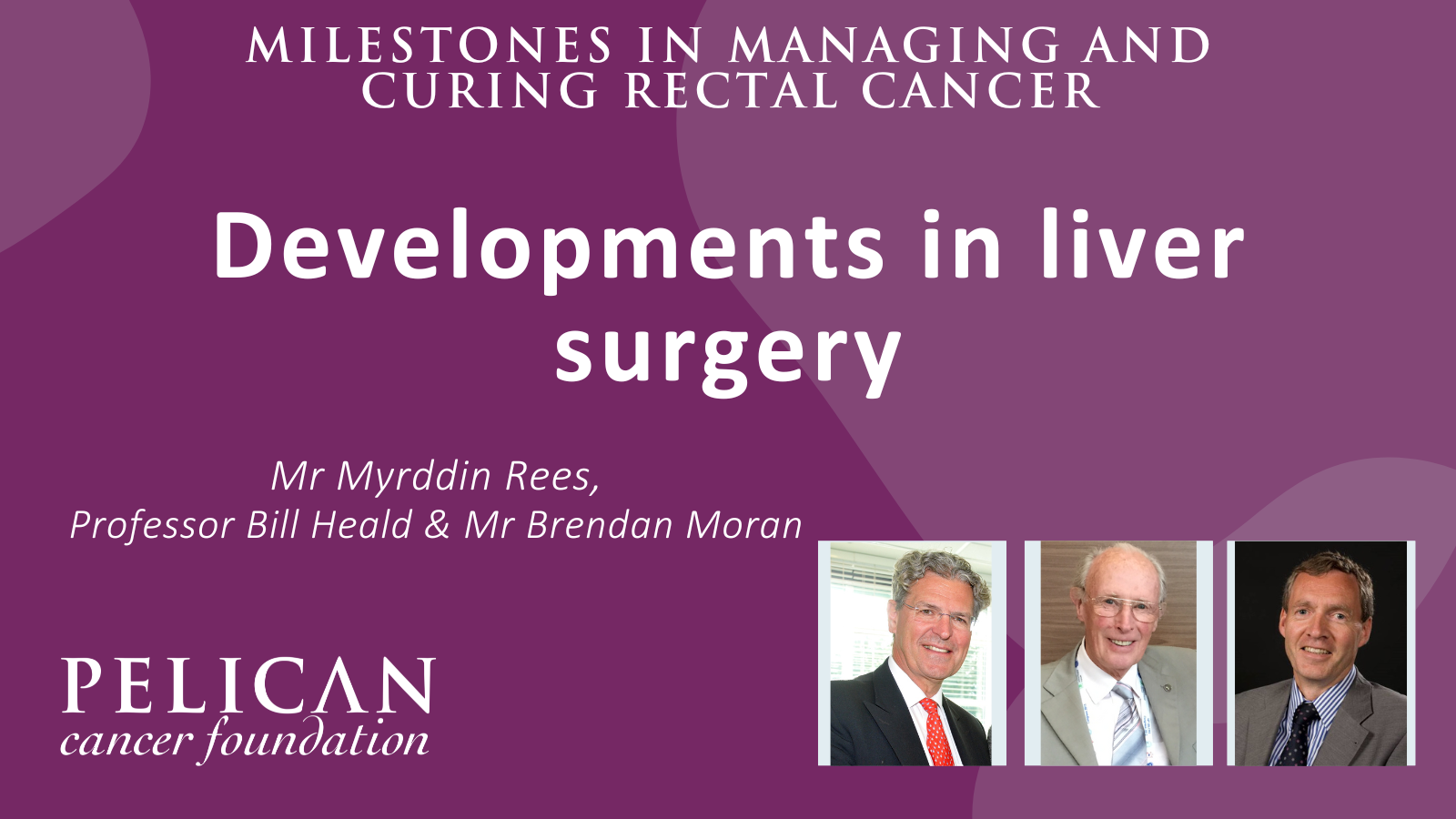 |
|
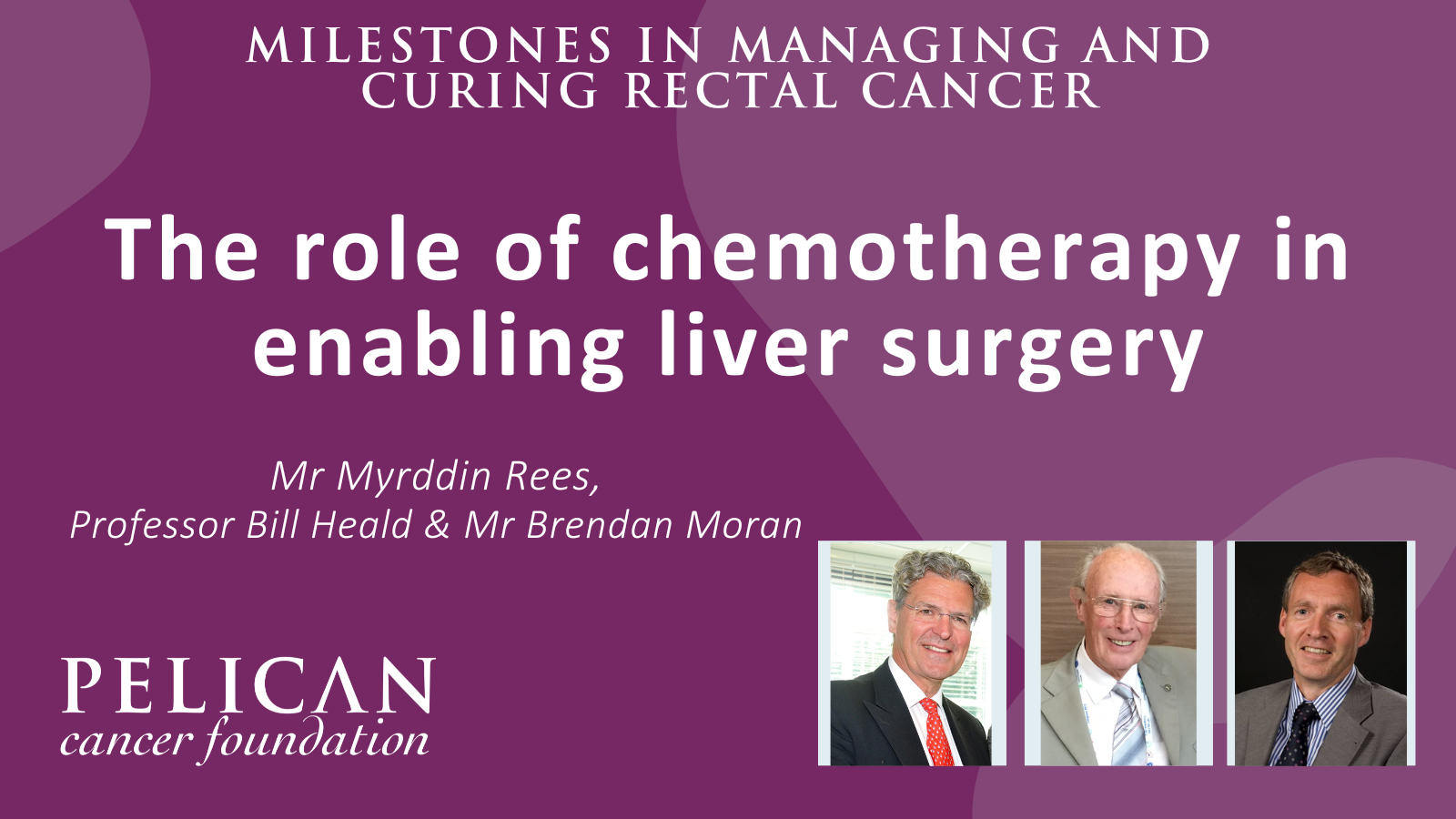 |
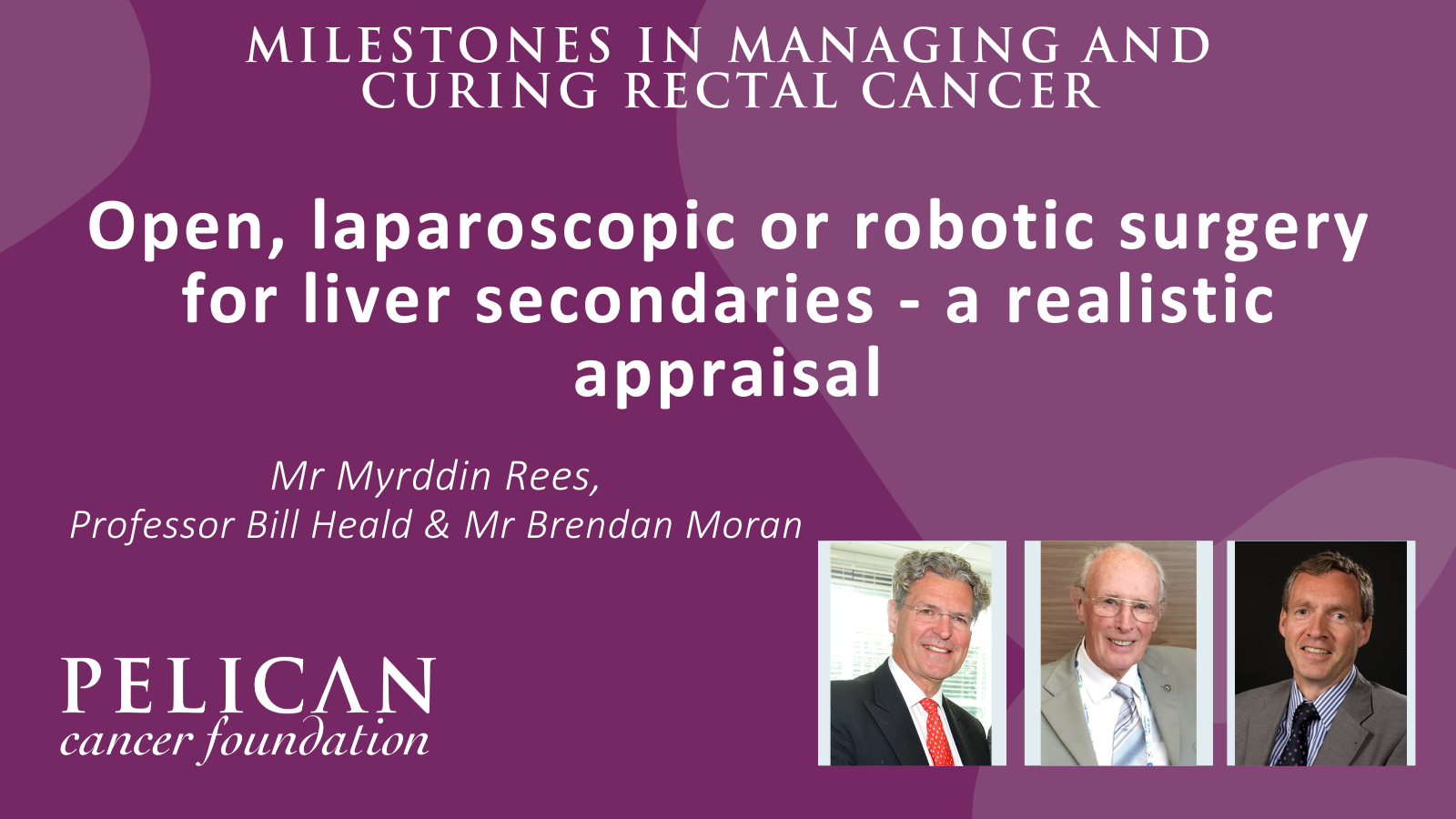 |
|
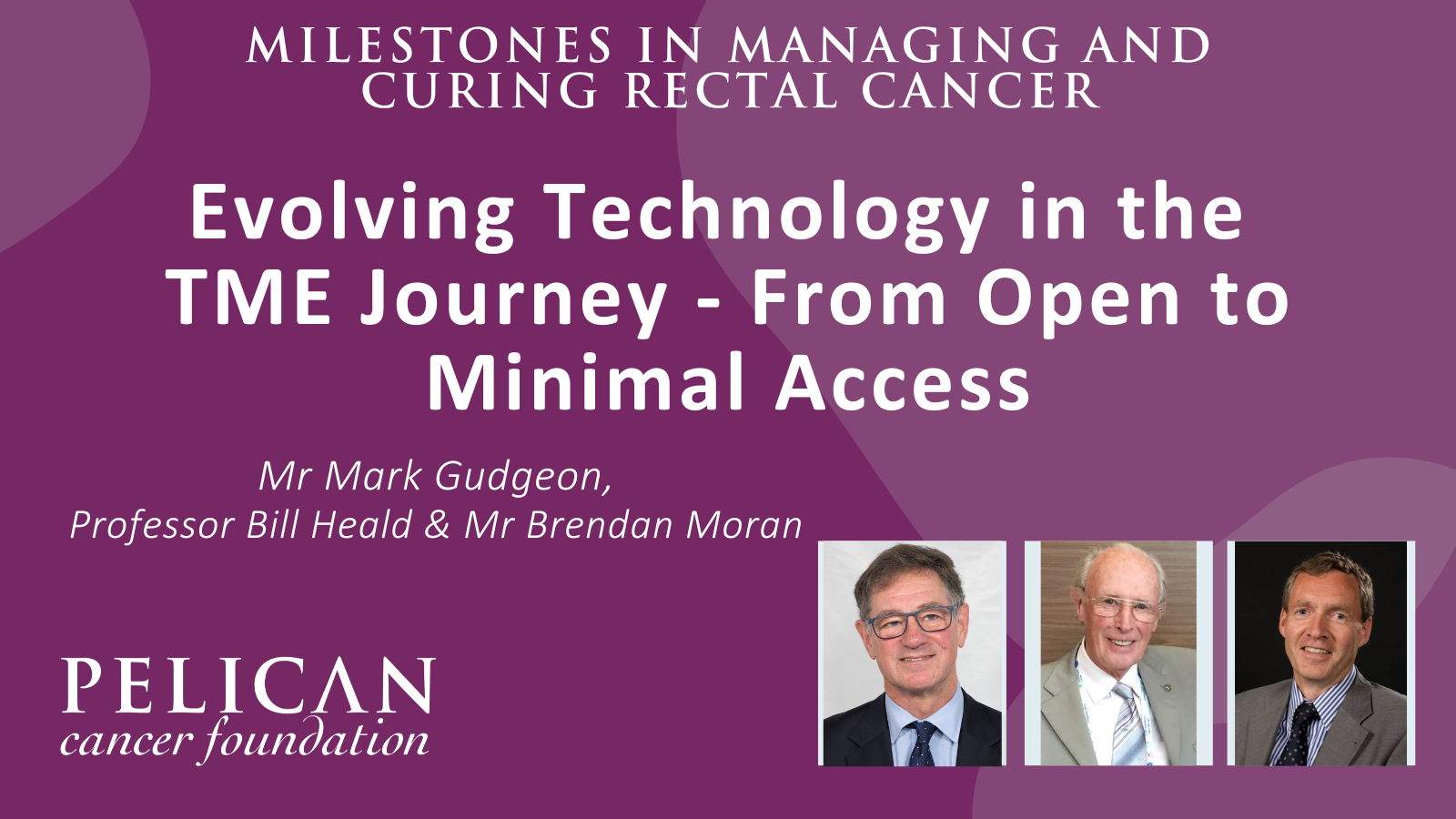 |
 |
|
 |
||






